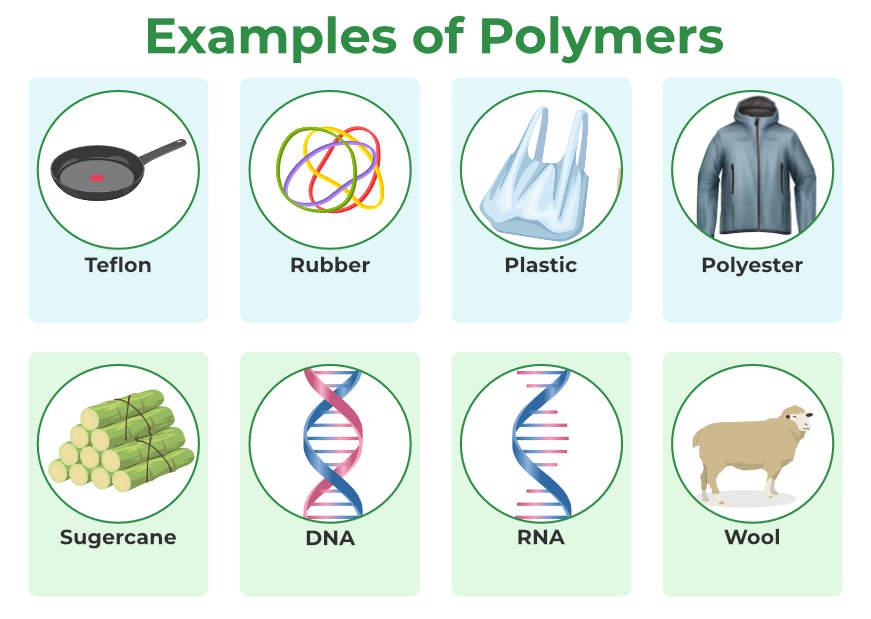Reusing Polymers: Promoting a Circular Economy
Reusing Polymers: Promoting a Circular Economy
Blog Article
Discovering the Varied Applications and Advantages of Polymers in Different Industries
Polymers, with their diverse range of residential or commercial properties and functionalities, have actually come to be crucial in different industries, each gaining distinct benefits from their application. From boosting security and efficiency in the vehicle sector to transforming clinical gadgets in the medical care sector, polymers play an essential role.
Automotive Field Applications
Polymers play an essential role in improving the efficiency and resilience of numerous parts within the automotive industry. One popular usage of polymers in the auto industry is in the production of lightweight elements.
:max_bytes(150000):strip_icc()/three-dimensional-model-of-polyvinyl-chloride-165874889-5c425ea7c9e77c000188be6d.jpg)
Healthcare Market Benefits
In numerous medical care applications, the benefits of utilizing polymers are widely recognized for their diverse variety of beneficial residential properties. Polymers play a crucial role in the healthcare sector due to their flexibility, biocompatibility, and cost-effectiveness. One of the primary advantages of polymers in medical care is their capacity to be customized to details demands, such as versatility, toughness, and biodegradability, making them ideal for a large range of medical applications.
Polymer-based products are thoroughly utilized in clinical tools, such as catheters, implants, prosthetics, and medication shipment systems, because of their biocompatibility and ability to mimic natural tissues. These products can lower the danger of allergic reactions or denials, improving person safety and security and results. Additionally, polymers are lightweight, making them ideal for wearable clinical devices and ensuring individual convenience.
In addition, polymers allow the development of ingenious treatment techniques, such as hydrogels for tissue engineering and nanocomposites for targeted medicine shipment. Their convenience of processing and sanitation makes them important for keeping high standards of hygiene in healthcare settings. On the whole, the diverse benefits of polymers add substantially to advancements in medical innovation and patient treatment.
Environmental Advantages of Polymers

Moreover, polymers can add to energy financial savings as a result of their lightweight nature. In sectors such as transport, light-weight polymer materials can help in reducing gas intake and greenhouse gas exhausts. Additionally, polymers can allow the development of energy-efficient products such as insulation products that boost power visit homepage preservation in buildings.
Moreover, polymers play an essential duty in lowering water air pollution. The use of polymer-based filtration systems can effectively get rid of toxins and impurities from wastewater, securing water sources and environments. In general, the environmental benefits of polymers make them beneficial properties in promoting sustainability and green practices throughout different markets.
Polymers in Electronics and Modern Technology
Taking into consideration the enhancing demand for innovative and lasting options in contemporary industries, the assimilation of sophisticated polymer innovations in the realm of electronics and modern technology has emerged as a crucial technique for driving efficiency and performance. Polymers have actually reinvented the electronics sector by allowing the manufacturing of lighter, a lot more flexible, and long lasting digital devices. From smart devices to clinical gadgets, polymers play a vital role in improving product style and functionality.
One significant advantage of polymers in electronics is their shielding homes, which help safeguard fragile digital elements from ecological elements and electric interference. In addition, polymers are necessary in the advancement of flexible screens, wearable technology, and printed electronic devices, offering unlimited opportunities for developing smart and interconnected gadgets.
Furthermore, the use of polymers in digital product packaging has caused advancements in miniaturization and thermal monitoring, boosting the overall performance and dependability of digital systems. As modern technology remains the original source to develop, the convenience and adaptability of polymers will definitely drive better innovation in the electronics industry, shaping the future of technology.
Function of Polymers in Building and Framework
The assimilation of innovative polymer products in construction and infrastructure tasks has revolutionized the way structures are designed and built in modern times. Polymers offer numerous advantages in the building market due to their flexibility, sturdiness, and cost-effectiveness. One crucial function of polymers in building is their usage in coatings and sealers, supplying security against environmental variables such as moisture, UV radiation, and corrosion. In addition, polymers are made use of in the production of lightweight and high-strength composite materials, boosting the architectural integrity of buildings while reducing total weight.
Moreover, polymers play a vital duty in sustainable building techniques by enabling the development of energy-efficient structures. Protecting products made from polymers aid regulate interior temperatures, reducing the need for home heating and cooling down systems and inevitably lowering energy intake - Polymers.
Conclusion
Finally, polymers play a crucial role in various markets such as auto, healthcare, environmental, electronics, and construction. Their versatile properties next make them valuable in creating ingenious remedies and items. From boosting gas performance in automobiles to boosting medical tools, polymers offer numerous benefits. In addition, their effect on lowering waste and advertising sustainability highlights their value in modern applications. The widespread use polymers shows their substantial payment to advancing innovation and improving high quality of life.
Report this page